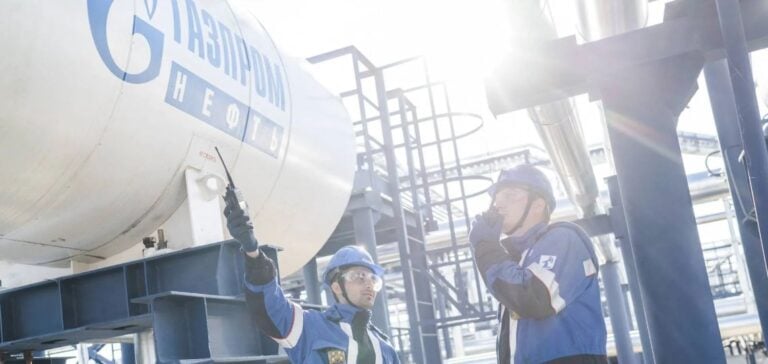The G7 countries and China are evaluating hydrogen production costs based on specific economic criteria to determine an acceptable breakeven price for industries and end-users. In the United States, for instance, the heavy transport sector in California sets a breakeven threshold of $5 to $7 per kilogram to compete with diesel, with prices at the pump reaching up to $9 per kilogram. In American petrochemicals, the benchmark is significantly lower: Gulf Coast producers report paying as little as $0.80 to $1 per kilogram for standard hydrogen, complicating the integration of costlier low-carbon options. The price gap between conventional hydrogen and low-carbon hydrogen is due to the technological maturity of amortized sites and the difficulty of passing on the added costs to the final consumer.
Competitiveness Gap in Europe and Japan
In Europe, the production of green hydrogen through electrolysis currently ranges from €2.50 to €5.50 per kilogram, depending on the electricity source (wind, solar, or nuclear). European targets aim for prices between €1.50 and €2 to compete with fossil fuels. Sector studies indicate that in Germany, supply costs for heavy transport can reach €9 per kilogram delivered, while in industry, some initiatives aim to offset the gap through subsidies. In Japan, where hydrogen is seen as a strategic pillar, production costs range between $10 and $12 per kilogram. However, stakeholders are targeting a threshold of around $6 to $7 per kilogram to compete with liquefied natural gas (LNG) and encourage adoption in heavy transport.
Factors influencing prices include the availability of renewable energy, production scale, and the ability to quickly amortize investments. In Japan, small-scale electrolysis projects and heavy reliance on imported fossil fuels keep prices higher than in Europe. The Japanese government supports subsidy programs and funds infrastructure to drive down these costs. For industry players, this represents an energy independence issue, justifying a higher price point compared to other regions.
United Kingdom, Canada, and Italy: Prospects for Cost Reduction
The United Kingdom is investing in blue hydrogen (from natural gas with CO₂ capture) and green hydrogen to bring costs down to £2 to £3 per kilogram by 2030, compared to £4 to £6 today for the cleanest solutions. Initial projects, concentrated in industrial hubs such as Teesside and Humber, aim to make this energy vector competitive for steelmaking, petrochemicals, and transport.
Canada, meanwhile, benefits from abundant hydropower resources to produce green hydrogen at around CA$4 to CA$6 per kilogram. Its blue hydrogen, often cheaper, is priced between CA$2 and CA$3 per kilogram, supported by the proximity of gas fields and CO₂ capture sites.
Italy, integrated into the European Union’s global strategy, applies the same price ranges as its neighbors for green hydrogen, around €2.50 to €5.50 per kilogram. The challenges lie in integrating hydrogen into the existing gas grid and establishing supply corridors to support industrial demand. Financial aid and the gradual reduction in the cost of electrolyzers are key factors enabling Italian industries to target lower prices in the coming years.
China’s Central Role and Competitiveness Goals
China, the world’s largest hydrogen producer by volume, is striving to lower the cost of green hydrogen, currently estimated at $3 to $4 per kilogram, through locally produced, lower-cost electrolyzers. Official targets aim for $2.50 per kilogram by 2030 to directly compete with diesel and LNG for heavy transport vehicles. The rapid development of refueling stations, already numbering over 450 nationwide, is accompanied by targeted initiatives in steelmaking and chemicals.
China’s hydrogen competitiveness is supported by its market size, declining equipment manufacturing costs, and government-driven momentum. Industries such as hydrogen-based steel production benefit from massive investments to accelerate the transition. However, questions remain about reducing emissions from gray hydrogen, which is cheap and widely used.
Sectoral Impacts and Industrial Trade-Offs
Several industries in the G7 and China see low-carbon hydrogen as a future lever, but the main obstacle lies in the price gap compared to natural gas or other traditional fuels. The heavy transport and chemical sectors are sensitive to even minor cost increases, requiring a precise breakeven threshold. In the U.S., Gulf Coast petrochemicals favor gray hydrogen priced between $0.80 and $1 per kilogram, making it difficult to integrate a green option that can cost double or triple. In Japan and Canada, subsidies are deemed essential to encourage industries and municipalities to adopt hydrogen solutions.
Public policies play a significant role in guiding investments and setting target prices, particularly through tax credits, guaranteed rates, or demand-support mechanisms. Industrial stakeholders hope to amortize their facilities more quickly and justify higher breakeven costs. Potential benefits could include massive CO₂ emission reductions, more diversified energy supplies, and better resilience to fossil market volatility.






















